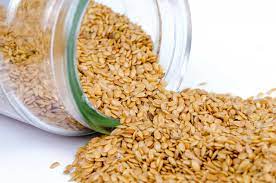Gas is a natural part of the digestive process, but when it becomes trapped or accumulates in the gut, it can lead to discomfort and pain. Unexpectedly, the effects of inordinate gas are not limited to the abdomen; they can also manifest as shoulder and neck pain. In this article, we’ll explore the relationship between gas and shoulder pain, exfoliate light on the factors contributing to this unanticipated connection, and give practical tips to palliate discomfort. Also, it provides practical tips to alleviate discomfort and palliate the unanticipated impacts of inordinate gas. Can gas cause shoulder pain? This question prompts a deeper disquisition into the unanticipated connections between digestive issues and discomfort in the shoulders
Gas Accumulation in the Gut
Gas can accumulate in the digestive system for colorful reasons, similar as swallowing air while eating or drinking, consuming gas- producing foods, and hamstrung digestion. When this gas builds up, it can produce pressure and discomfort that radiate beyond the abdominal region. Understanding the dynamics of gas accumulation is pivotal to addressing the implicit impact on the shoulders and neck. Also, certain foods, known as gas- producing lawbreakers, can consolidate this process.
Foods like sap, carbonated potables, and cruciferous vegetables are notorious for aggravating gas accumulation. Also, hamstrung digestion can further compound the issue, leading to the retention of feasts within the digestive tract. As this gas builds up, it exerts pressure, causing discomfort that extends well beyond the abdominal region. The intricate interplay of these factors underscores the need for a comprehensive approach to managing gas- related issues, not only for digestive well- being but also to help unanticipated radiating pain in the shoulders and neck.
Understanding the dynamics of gas accumulation empowers individualities to make informed choices in their eating habits and life, promoting a more harmonious relationship with their digestive systems.
Can gas cause shoulder and neck pain?
The surprising answer is yes. The diaphragm, a muscle that separates the chest and abdominal depressions, plays a vital part in breathing and, laterally, in the movement of gas. When inordinate gas accumulates, it can put pressure on the diaphragm, leading to pertained pain in the shoulders and neck. This phenomenon is known as pertained pain, where discomfort is felt in an area different from the factual source of the problem. Gas- related shoulder pain can also be attributed to irritation of the phrenic nerves, which extend from the neck down to the diaphragm. The connection between these nerves and the diaphragm means that gas- related pressure can beget pain signals to be transmitted to the shoulders and neck. Understanding this connection highlights the significance of addressing gas- related issues, not only for digestive comfort but also to help unanticipated pain in distant areas of the body.
How Do I Get Rid of Gas Pain in the Chest and Shoulder?
Fortunately, there are several effective strategies to palliate gas- related pain in the casket, shoulders, and neck. Wondering, can gas beget shoulder pain? The surprising relationship between gas accumulation and shoulder discomfort highlights the connected nature of fleshly functions.
Avoid holding gas in
One common mistake numerous individualities make is holding in gas, either due to social form or discomfort. Still, suppressing the release of gas can lead to its upward movement through the digestive tract, causing pressure and pain in unanticipated areas, including the shoulders. To help this, it’s essential to hear your body and allow gas to escape naturally.
Avoid eating too fast
Eating too snappily can lead to swallowing air, contributing to gas buildup in the digestive system. To alleviate this, practice aware eating by biting food completely and savoring each bite. This not only aids digestion but also reduces the liability of inordinate gas conformation.
Use a glass or cup
Opting for a glass or mug over a straw when drinking can minimize the input of air, reducing the chances of gas accumulation. Straws can inadvertently introduce air into the digestive system, contributing to bloating and discomfort. By espousing these practical measures, individualities can effectively manage and help gas- related pain, not only in the abdominal region but also in the shoulders and neck.
Avoid carbonated drinks
Carbonated potables are a common malefactor when it comes to gas- related discomfort. The fizziness in these drinks is a result of dissolved carbon dioxide, which can contribute to bloating and increased gas product in the digestive system. When consumed, these bubbles can accumulate in the stomach, leading to pressure and distension. This redundant gas can also travel overhead, affecting the diaphragm and potentially causing shoulder and neck pain. By concluding for still potables and minimizing carbonated drink input, individualities can reduce the liability of gas- related discomfort and its unanticipated impact on distant areas of the body.
Take a Closer Look at Your Diet
A pivotal aspect of managing gas- related pain is a careful examination of salutary habits. Certain foods are known to produce further gas during digestion, and relating and moderating their consumption can be necessary in precluding discomfort. Legumes, cruciferous vegetables, and high- fiber foods, while nutritionally precious, can contribute to gas conformation. Keeping a food journal to track associations between specific reflection and gas symptoms can help pinpoint salutary triggers. Conforming the input of gas- producing foods and concluding for a well- balanced diet can contribute significantly to digestive comfort. Also, consulting with a healthcare professional or a nutritionist can give substantiated perceptivity into salutary variations acclimatized to individual requirements, helping to palliate gas- related issues and the associated shoulder and neck pain. Can gas cause shoulder pain? Shoveling into this query unveils the complex dynamics between gastrointestinal factors and unanticipated physical discomfort, expanding our understanding of fleshly interconnectedness.
Also Read: Why you are facing Ear and Tooth Pain on Right Side?



